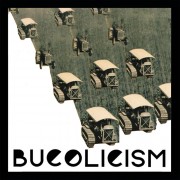And then one fine day the bourgeoisie is awakened by a terrific boomerang effect: the gestapos are busy, the prisons fill up, the torturers standing around the racks invent, refine, discuss. People are surprised, they become indignant. They say: “How strange! But never mind—it’s Nazism, it will pass!” And they wait, and they hope; and they hide the truth from themselves, that it is barbarism, the supreme barbarism, the crowning barbarism that sums up all the daily barbarisms; that it is Nazism, yes, but that before they were its victims, they were its accomplices; that they tolerated that Nazism before it was inflicted on them, that they absolved it, shut their eyes to it, legitimized it, because, until then, it had been applied only to non-European peoples; that they have cultivated that Nazism, that they are responsible for it, and that before engulfing the whole edifice of Western, Christian civilization in its reddened waters, it oozes, seeps, and trickles from every crack.
One skill that you master while working at an abattoir is disassociation. You learn to become numb to death and to suffering. Instead of thinking about cows as entire beings, you separate them into their saleable, edible body parts. It doesn’t just make the job easier – it’s necessary for survival.





